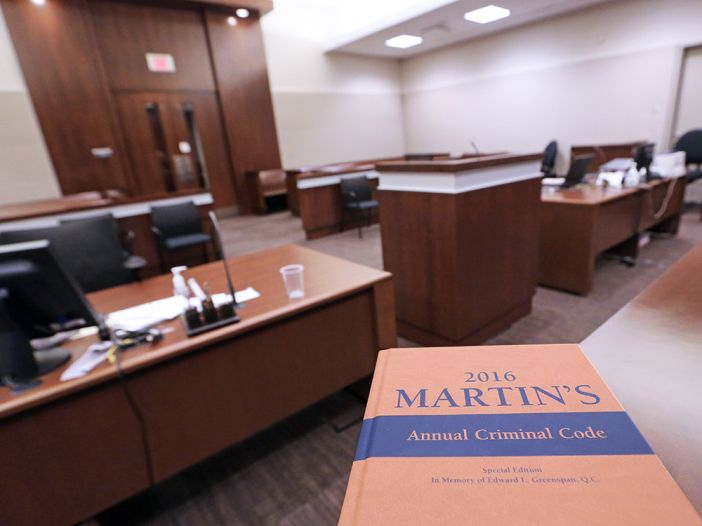Connection
Latest news
CACC Meets with UHM Voice of the Workers and Malta Government Lawyers
In 2022, UHM Voice of the Workers marked a significant milestone by negotiating the very first collective agreement for the Attorney General’s Office. The groundbreaking efforts of UHM Voice of the Workers have not gone unnoticed. Their achievements resonated across borders, drawing the attention of the Canadian Association of Crown Counsel (CACC). At a recent meeting on the sidelines of the Commonwealth Lawyers Association conference in Malta, representatives from the CACC engaged with UHM delegates to learn from their experiences.
[ ...More ]Publication date : 2025-04-11
A system in crisis: Rebuilding the dwindling Crown Attorney’s Office
With more files, more complex files and less resources, not surprisingly, Crown Attorneys are burning out and quitting. The lack of sufficient lawyers, especially experienced lawyers, has led to crisis in many provinces. Associations representing Crown Attorneys in Alberta, Ontario, New Brunswick and Nova Scotia have recently sounded the alarm...
[ ...More ]Publication date : 2025-03-14
Crown attorneys call on Manitoba government to help address ‘dangerously heavy caseloads’
The Manitoba Association of Crown Attorneys (MACA) is calling on the provincial government to help reduce mounting workloads that it says are making it difficult for prosecutors to meet their professional responsibilities. grievance it filed in April 2023. It says the grievance it filed back in April 2023 regarding 'dangerously heavy caseloads' won't be heard by an arbitrator until October 2025.
[ ...More ]Publication date : 2025-01-10
Preparing RCMP body-cam evidence for court will be monumental task, prosecutor says
The RCMP is phasing-in the use of body-worn cameras across the country and expects 90 per cent of frontline members to be wearing them within a year. Shara Munn, president of the New Brunswick Crown Prosecutors Association, said while the body-camera evidence will be great to have, it will also mean a huge influx of work for prosecutors.
[ ...More ]Publication date : 2025-01-06
N.L. government invests in 18 new Crown attorneys amid severe staffing crunch
Newfoundland and Labrador Justice Minister Bernard Davis announced Wednesday afternoon that the provincial government is investing nearly $24 million to improve the province's justice system.... The investment comes after CBC News reported in numerous stories that Crown attorneys in the province were "suffocating" from overwhelming workloads and a critical staffing shortage.
[ ...More ]Publication date : 2024-11-14
Newfoundland to add more Crown prosecutors
Newfoundland and Labrador has agreed to hire more Crown lawyers following cries of a shortage of prosecutors in the province. The “multi-year investment” will include the hiring of 18 new Crown lawyers, according to a news release.
[ ...More ]Publication date : 2024-11-13
<-- Back to archived news
Preliminary hearings dropped in effort to speed up courts; lawyers say it will have opposite effect
19-09-2019
Inside a courtroom at the Calgary Courts Centre. POSTMEDIA ARCHIVES
Preliminary inquiries for a majority of criminal offences in Canada are going the way of the dodo bird.
As of Thursday, only those facing a maximum sentence of 14 years in prison or longer will be eligible for a preliminary inquiry, a legal proceeding in which a judge determines whether there is enough evidence to send a case to trial. Under the new federal legislation, preliminary hearings will not be held for many serious charges, such as sexual assault, assault with a weapon, major theft and most firearms offences.
The amendment to the Criminal Code is intended to reduce court delays, but lawyers on both sides of the criminal bar in Calgary said it may have the opposite effect.
“We think it’s going to have the reverse effect than what was intended,” said Ian Savage, president of the Criminal Defence Lawyers’ Association.
“It’s not going to save time, it’s going to increase delays in the court system.”
Savage said the hearings, which tend to be much shorter than trials because the Crown doesn’t have to call all its witnesses and defence lawyers focus on narrower issues, often result in either guilty pleas or charges being dropped.
“Cases (which might otherwise be resolved) will unnecessarily push forward to trial,” Savage said.
And without preliminary inquiries, more cases will be headed to Court of Queen’s Bench, where resources are stretched more than in provincial court.
Rosalind Greenwood, a vice-president with the Alberta Crown Attorneys’ Association, echoed Savage’s comments.
Greenwood said her organization presented arguments to a Senate committee considering the legislation, expressing their opinion the legislation wouldn’t have its desired effect.
“In our submissions we . . . highlighted that there are many benefits to preliminary inquiries, including that it can narrow issues at trial,” she said.
Not only can they trigger resolution talks, but they have other benefits, Greenwood said.
“Preliminary inquiries can also be really helpful for the Crown because it can highlight difficulties with certain evidence, which you can resolve before trial.”
She said they also noted in their Senate brief that in 2014-15 preliminary hearings were only held in three per cent of all criminal cases.
“If the intended effect is to speed up trials, we don’t expect it’s going to have that effect . . . because they’re a very low percentage,” Greenwood said.
Instead, Parliament should focus on funding the system.
“What is most urgently needed by the criminal justice system are more resources, not only for the courts, but for the prosecution services and Legal Aid.”


